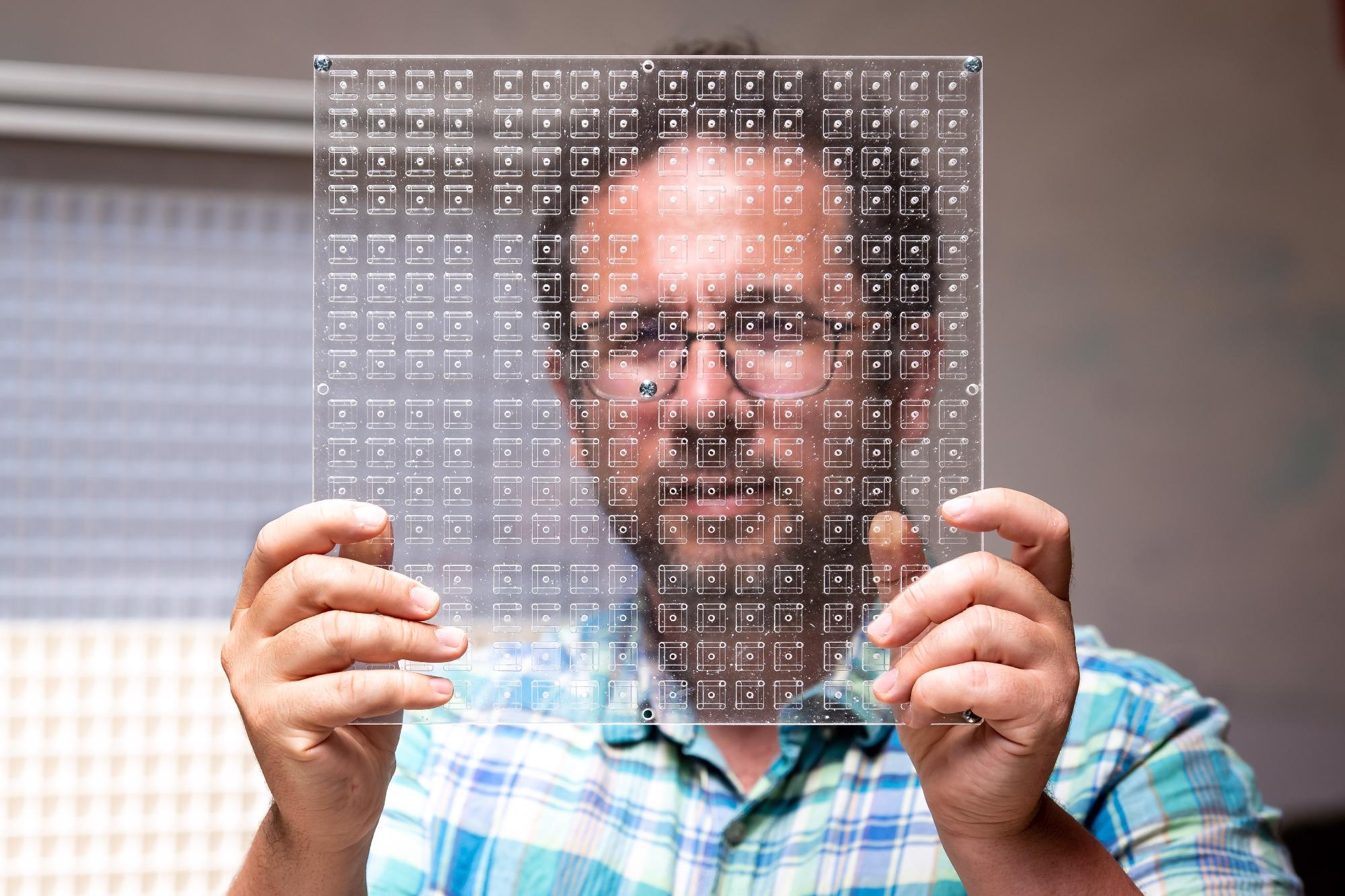Jun 24 2021
A pioneering material that gives unprecedented control on sound and noise is to be trialled in hospitals and other noisy locations such as beside motorways.

Image Credit: University of Sussex
The technology allows scientists to turn plastic sheets into powerful noise-cancelling panels with the same noise-reduction effect of as two inches of plywood but weighing four to six times less.
And, because they are easily moveable, the panels can transform a noisy living room and open office space or silence a busy hospital ward.
A study published in the British Medical Journal reported that 40 percent of hospital patients are bothered by noise at night with levels regularly exceeding international recommendations.
Another, dated March 2021, shows that noise levels as high as 88 dB have been measured in intensive care units: the equivalent of having loud music through headphones for a whole day and noisier than most motorways.
The company behind the SonoblindTM panels, Metasonixx, is a spin out from the Universities of Sussex and Bristol. The company, founded by Dr Gianluca Memoli, from the School of Engineering of Informatics of the University of Sussex, and by Prof. Bruce Drinkwater, of Bristol University, has just been awarded the Armourers & Brasiers Venture Prize. The prize comes with £25,000 investment.
“Our panels are much lighter than traditional solutions for noise abatement and, if required, can even let air and light through,” said Dr Memoli. “Some of the panels can be used as grilles to silence air conditioning units and extractor fans or as part of blinds, to keep the noise out while the window stays open.”
Trials are about to start in UK hospitals in an attempt to reduce the constant noise on busy wards. A 2020 study conducted at St. George’s hospital in London attributes unwanted noise mostly to medical equipment, such as ventilators, and their buzzing alarms. Excessive noise in hospitals has been implicated for patients in the development of hospitalisation induced stress, delayed recovery, high blood pressure and poor mental health. For staff, it leads to stress and reduced performance.
Similarly, Metasonixx is soon to start working with MOVYON, the centre for research and innovation within the Autostrade per l'Italia Group. This project will look at using metamaterial panels externally, to create quiet areas for drivers in peaceful outdoor settings. “The measurements to characterise the local soundscape are underway near Florence, and our initial ideas will be presented at Euronoise 2021, in October,” says Jon Eccles, one of the Metasonixx technicians involved.
Metasonixx is also working with companies like Apollo Tyres Ltd and Bioecology srl to incorporate its patented technology into other scenarios, from transportation to sanification robots.
Metasonixx is showing how research and innovation has the potential to improve the quality of our lives by removing unwanted noise,” said Professor Bill Bonfield, chairman of the Armourers and Brasiers Venture Prize judging panel. “Our prize looks to encourage scientific entrepreneurship in the UK and provide funding to help innovative developments like this realise their potential.”
“We intend to use the Venture Prize money to manufacture panels, to be used in trials in hospitals and offices across the UK, said Dr Memoli. “Our designs take inspiration from devices that shape light - like lenses, holograms and LCD displays. Metasonixx's technology, based on acoustic metamaterials, can be the ultimate defence against noise at home or in open offices.”